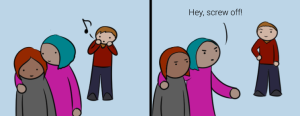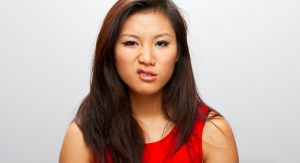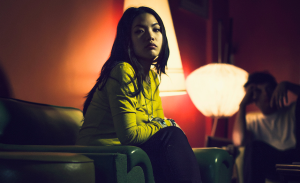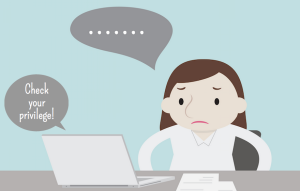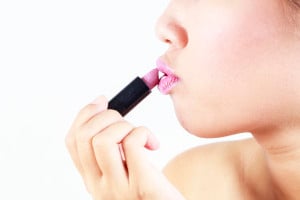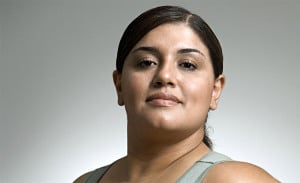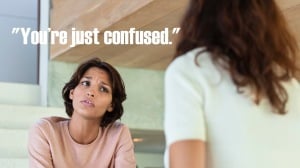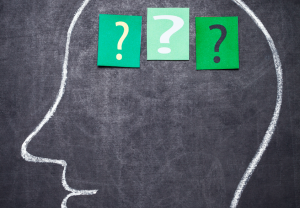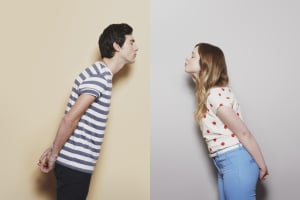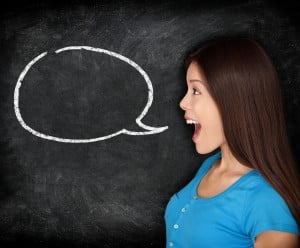(Content Warning: eating disorders, disordered eating, food restriction)
The common thread throughout my entire life has been that food has been an overpowering force.
Not powerful in the way that food can nourish your soul or your body, but powerful in my constructed worldview.
I’ve always had a complicated relationship with food – and I’ve had what you might call “disordered eating” of one kind or another for as long as I can remember.
I was a food hoarder as a child, and I’ve been a binge-eater for decades. I’ve never been happy with the way I look, and I’ve always felt incredible shame about my intense love of food.
It still stings to admit this, but I’ve spent many nights alone, eating my pain, and hating myself for not being able to stop after I’m full.
More recently, I’ve swung completely in the opposite direction. Food doesn’t taste good to me anymore. I’ve lost so much weight in the past few weeks that my clothes fall off me, and all I want to do is sleep.
Like many people – but, it should be noted, not all – who struggle with disordered eating, my situation was, in part, a reaction to feeling out of control.
My girlfriend of three years was slowly leaving me, and I was terrified of losing her along with all the things that being with her entailed.
I was nervous about finding a new place to live, I was nervous about being single, I was nervous about how I was going to afford a move, I was nervous about how I was going to survive on my own in a new state where I didn’t know many people.
Slowly, I let rational behaviors – like spending less on food to save money, and trying to get in shape to feel more confident when dating – turn into an overwhelming focus on how much food I was eating.
And my struggles with eating and body image swinging in the opposite direction have given me some interesting new thoughts about my size and my body image.
Namely, I don’t feel better.
I assumed that my weight loss story would have a happy ending, just like the strangely joyful people who dance around at the end of Weight Watchers commercials.
I’m skinnier. But instead of feeling sexy and “healthy,” I feel weak and small.
I have never been a follower. I’ve been a maverick from day one, and starving myself to become thin has always something I rejected because I’ve learned from the body positivity movement that self-confidence comes from a healthy, well-maintained relationship with your body, not being a particular size.
But I gave in recently. I stopped listening to my body when it said it was hungry, and I let myself do what felt like the easy thing – which was to become smaller.
But being smaller didn’t make me feel good. It made me feel like I was disappearing. It made me feel less personally powerful.
I never expected to feel this way, but it fits in perfectly with what I’ve learned in my work in the fat acceptance movement.
My capacity for growth and my ability to live a rich, important life on my own terms is not related to size.
Small people are powerful. Big people are powerful. I lost my power when I started letting my size mean something about who I was.
I got lucky. After a few months, I was able to eat enough to maintain a healthy body weight. But my terror of fatness, my own fatness, is still a powerful force. It scares me how I could lose a scary amount of weight, feel puny and helpless and unattractive, and still be unwilling to love my body when it isn’t within my perfect weight range.
My “perfect weight range,” of course, should be how I want my body to feel for maximum comfort and sexiness.
Instead, it’s turned into how I want my body to look because I’ve been absorbing toxic garbage about what’s beautiful and what’s not, as well as toxic garbage about the fact that I should definitely care about what is beautiful and what’s not, my whole life.
I wish I could say that I have it figured out now, that I identified my problem and crushed it with my mind-vice. But I didn’t.
And I know that I’m not the only one who struggles with issues related to the consumption of food. Not by a long shot.
But the truth is: I, and the millions of other Americans who suffer from some type of disordered eating (including an estimated 30 million with clinically significant eating disorders), don’t have an answer.
But what I do have now are some questions – ones to ask myself for reminders that there’s nothing natural or admirable about treating my body this way.
Because I’ve learned, over time, to interrogate my relationship with toxic beauty standards, and I’ve come up with five questions that help me disrupt negative thoughts about myself and my body when it comes to food.
This is not a condemnation of myself, nor is it an attempt to blame people who struggle with disordered eating for their problems.
It’s simply a guide to challenging the poisonous assumptions that are making us sick and unhappy, and challenging the notion that food restriction is ever a wise way to achieve self-acceptance.
Because the forces, both nature and nurture, that cause this kind of thought are not invincible – and they need to be challenged, by me, by you, and by everyone who suffers under the oppressive weight of diet culture.
1. Why Am I Okay with Ignoring My Body’s Needs?
I don’t refuse to let it pee or give it fake medicine! What is it about food that makes me think I need to abandon self-care?
Self-care isn’t just eating spinach and jogging. Self-care can mean eating an oven pizza because it feels good, or because I’ve pushed my body to the limits at work and want to care for myself by removing the chore of cooking from my schedule.
Self-care can mean making the decision to eat something I’m craving because that will make me happy.
It’s difficult to strike a balance between giving your body what it needs to function and giving yourself permission to enjoy activities and experiences that might have long or short term health repercussions.
Because of our toxic diet culture, most of the information we get is on how to shift our balance in the direction of making choices about food and exercise that lead to weight loss – but what if the problem is that you are on the other side?
Ignoring your body’s cries for fat and calories, or your brain’s need for comfort in the form of junk food, or a glass of wine can be quite harmful. We don’t rip ice cream out of our friends’ hands after a bad day and tell them they should eat a salad instead – and shouldn’t!
But many of us could benefit from extending ourselves the understanding and flexibility that we offer other people when it comes to what we put in our bodies.
2. Why Does My Body Have to Look a Certain Way Before I Feel It Deserves Respect?
Do I think about other people this way? Why is a plump ass and thick thighs nice on women, but “ugly” on me?
Is it because of my gender? Is it because I’m still under the thumb of unrealistic American beauty standards?
Why does my body have to look a way that’s very different from the people in my community?
What is it about me that I believe I need to look different and have different eating patterns from my peers?
Is this coming from a healthy place of listening to my body’s needs, or a disordered (and, frankly, arrogant) place of needing to be “better than” my peers?
It’s important to sort out my desire to present a certain way, and my “aesthetic role models” from the garbage body-criticism I was raised on – and I know I’m not the only one who struggles with this.
Having aesthetic ideals is a normal, healthy behavior. Hating yourself for not looking the way you want to look is a destructive behavior.
Image goals should always be flexible, attainable, and make us feel happy and whole – when or if we attain them, and while we are striving for them.
The benchmark I use for whether an aesthetic standard is hurting or helping is this: Am I seeing the change as a solution to a “problem,” or am I seeing it as a fun addition to my already-cute self?
Haircuts, new outfits, nail-painting, new piercings. These all fall into the latter category. I might look at a haircut as a way to freshen up my look, but I don’t assume it’s going to make me dateable or lift a depression or make my discomfort with my body disappear.
When I start making choices about my body based on thinking I need to “fix” something, that’s when I know I’m stepping into dangerous territory.
3. Why Do I Feel So Strongly That Food and Morality Are Tied Together?
Why do I “deserve” or “not deserve” food? Is it because of the patriarchal beauty standards I grew up with? Is it tied to the use of moral words in diet and food ads I’ve been subjected to my whole life?
The diet industry – plus the American capitalist belief that you only deserve to eat if you’ve earned the money to do so – have really fucked me up.
I’ve taken an already toxic message and warped it even further to a mindset that discourages me from nourishing my body if I feel that I haven’t worked hard enough.
This is bullshit.
Bodies deserve food because they are bodies, mine included.
I deserve to eat, I deserve to eat food that nourishes me, and I deserve to enjoy what I eat.
I deserve to feel full if that is what I desire.
I deserve to eat protein, I deserve to eat “fancy foods,” I deserve to eat foods that are treats to me.
Simply by being a human being, we deserve to eat well.
4. Why Conform to a System That Will Never Approve of How We Look?
I’m a queer, non-binary trans person. I absorbed many, many gross patriarchal beauty messages while growing up as a person everyone thought was a girl, but have been presenting as masculine/male for years.
I was happy when I learned that an alternate system for evaluating my appearance existed–but that didn’t mean I was able to embrace it.
Why can’t I embrace queer beauty standards? What are queer beauty standards? Why do I feel so alienated by queer beauty?
Sometimes I do feel free from “mainstream” beauty standards – when are those times? What is different about them?
I wish my gender identity let me off the hook for beauty standards, but the truth is that my brain is complex, and it’s very interested in hanging on to these aspects of my early socialization.
I feel grateful that I’m part of a community that to some extent operates outside of mainstream beauty standards (although we still struggle with Eurocentrism, ableism, and body shaming – queer people are by no means perfect at accepting and valuing all bodies as beautiful).
However, I don’t always allow myself the flexibility some of my fellow community members are able to exercise when choosing their presentations. I’m still mired in the standards of a culture I don’t care for.
Queer beauty standards are, to put it simply: “You are beautiful as you are. Accessorize accordingly.”
Why on earth would I not immediately jump on that bandwagon? Why choose restriction when I could choose complete freedom? Why doesn’t everyone choose complete freedom?
I don’t know for sure, but I do know that living in a world where queer appearance ideals were socially and economically rewarded would make it easier to make that beautiful leap.
5. Do I Get More Social Capital When I’m Thinner?
How much thinner do I need to be? How much more capital would I get if I lost more?
One of the most dangerous things about dieting is the large social payoff you can get for losing weight. When I began losing weight, people listened to me more. I went on more dates. People paid more attention to me and validated me.
It is so hard to reject all this. It’s like willingly giving up privilege.
But it’s a trap.
I should be treated with respect and compassion regardless of my appearance, and people who find me sexy all the ways that I am are the people I should be dating. There’s nothing about playing into the system’s hands that actually empowers me.
This is the most important question of them all – and in the end, it’s what spurred me into seeking recovery.
I realized that I was intentionally giving up my ability to feel powerful in exchange for what was, for me, a nod to beauty standards I don’t even agree with.
It was then that I realized that this disordered eating was an enemy, not a friend.
This isn’t me. I want to be the most powerful version of myself I can be, and restricting my caloric intake wasn’t giving me power; it was taking it away.
Aside from becoming physically weaker, I was losing the ability to make decisions about how I wanted to spend my time and energy – while I was busy worrying about what I put into my mouth, I had less time and energy for creative expression, intimacy, exploration and joy.
I was cheating myself out of a full life. And I was tired of it.
***
When I’m at my healthiest, it’s because I am, whether consciously or unconsciously, keeping these questions in mind when I examine my relationship with food, my appearance, and my body.
It’s hard work interrogating these toxic messages, but it’s worth it.
We need to rethink the way we treat ourselves, and work together until we are each strong enough to say a resounding hell no to anyone or anything that makes us feel less than the magical creatures we are.
If anything in this article rang true to you, here are some excellent resources for learning more.
[do_widget id=’text-101′]
Wiley Reading is a Contributing Writer at Everyday Feminism. Wiley is a New Jersey-born artist, writer, environmentalist, and social justice advocate located in Burlington, VT. He works as a community health worker for the Greater Burlington YMCA, and writes for Disrupting Dinner Parties, a small collective feminist blog. In his free time, Wiley draws bugs and old buildings, loves every show on the Food Network, makes creative (read: pulled from the recycling) toys for his bunnies, and tipsily reminds every person in every bar that New Jersey is the best state. Follow him on Twitter @wreadinggo.
Search our 3000+ articles!
Read our articles about:
Our online racial justice training
Used by hundreds of universities, non-profits, and businesses.
Click to learn more






